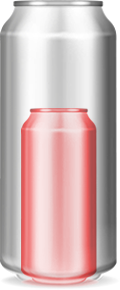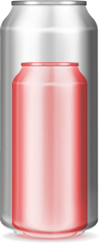Energy drinks remain a relatively new category of non-alcoholic and functional drinks – with a moderate stimulating effect, and with a combination of characteristic ingredients that include caffeine, taurine, vitamins and other substances with a known nutritional and physiological effect, also including sugars of different absorption.
Despite their relative novelty, they are an established and consolidated product option around the world, as part of a broader category of non-alcoholic beverages and therefore BEAL is aware that energy drink manufacturers also have an important role to play both to address overweight and obesity and to promote the responsible consumption of beverages and promote a healthy lifestyle not only through the promotion of active lifestyles but through policies that act on the size of the portion of food products.
It is key to meet both challenges and that this action of controlling the portion size is an effective and efficient tool from the point of view of cost.

1lt

700ml

500ml

350ml

250ml
Sobrepreso y obesidad
In 2019, an OECD report on obesity called ‘The Heavy Burden of Obesity’, concluded that portion size control could be used as a public health instrument to reduce the consumption of high-energy foods. This could be done “by distributing food into individual portions, prohibiting large portions, marketing the desired size, or designing products that clearly delineate the size of a portion.”
This measure of reducing portion size is supported by the McKinsey Global Institute,who concluded in their relevant study ‘Overcoming obesity: an initial economic analysis’ that pushing smaller portions is the most effective measure to deal with being overweight and obesity, generating a greater impact than fiscal or other measures.
BEAL members recognize that they must play an important role in supporting the scientific findings with concrete facts, through a series of measures, such as:
- The promotion of moderate and responsible consumption at all times
- The introduction of smaller sizes / packages.
- The promotion of safe products and according to high quality standards.
Taking into account the functionality of energy drinks, BEAL members commit to emphasize their 300ml net containers as their main format for individual consumption and to make the best efforts to balance and diversify their portfolios with smaller portions over time.
Responsible consumption of caffeine
A 250 ml can of an energy drink contains around 80 milligrams of caffeine. According to the conclusions of the European Food Safety Authority, 75-80 milligrams of caffeine in a single serving is all that is required to achieve the functional effect that energy drinks provide. Taking into account the scientific evidence, contents of around 80mg are presented as sufficient to achieve the desired effect and therefore the members of BEAL emphasize smaller portions regardless of the concepts about the safety of caffeine, which support significantly higher intakes.